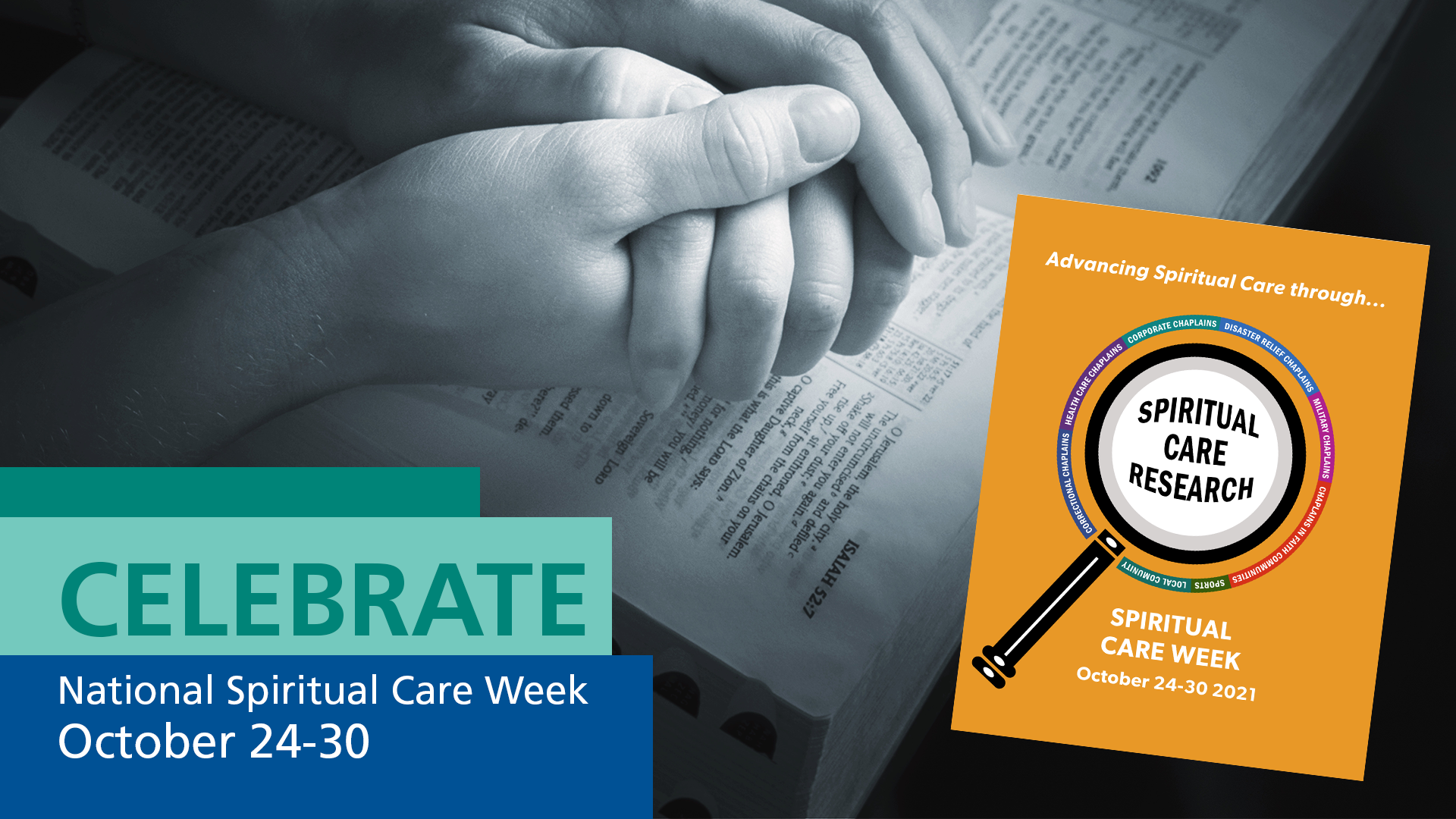October 24-30 celebrating Spiritual Care Week across the nation
“The theme for Spiritual Care Week is “Advancing Spiritual Care Through Research“.
Meaning and purpose are used often as spiritual definitions for chaplains and spiritual care providers. Chaplains and spiritual care providers have often defined their roles as a ministry of presence. Today chaplains and spiritual care providers exist in a data-driven and evidence-based world, particularly for those who work in health settings. Thus, the need to provide empirical evidence related to the care provided by chaplains and spiritual care providers. The needed evidence may be gained through qualitative and quantitative research methods.
An opportunity to apply research in specific settings where chaplains and spiritual care providers practice should produce both patient-centered and practitioner outcomes that validate the research. If validated research outcomes are transferable into a chaplain’s practice, it informs the chaplain of the effectiveness of his or her practice and, more importantly, brings value to chaplain care based on clinical outcomes, as well as needed dollars to support chaplain care.
Therefore, research becomes the frontier of our profession to measure what good chaplaincy work does for patients and teams within that specific setting. Since the practice of chaplaincy work is more than supportive care it has become imperative that chaplains and spiritual care providers embrace research. When integration and application of research merge, the efficacy of chaplaincy practice is then notable and measured.
Chaplains and spiritual care providers enjoy collaboration with peers around the care of patients. Collaboration is a necessity when juxtaposing chaplaincy work and research. Collaboration is more two-way/mutual in that the chaplain needs to both communicate AND listen based on evidence-based research. Research that informs chaplains and spiritual care providers about navigating institutional systems and preferred standards of professionalism within the healthcare continuum for patient-centered care becomes the model for chaplains and spiritual care providers as they offer care. Research can also better equip the chaplain to define their roles in the data-driven and evidence-based world by providing measurable goals.
Research becomes the catalyst to make the subjective-objective, the invisible visible, the intangible tangible and also fosters appreciation and legitimacy from those who do not reside in the role of chaplaincy work. Research needs to be systematic as a tool to establish common ground on which chaplains and spiritual care providers and the industry agree. Research allows chaplains and spiritual care providers to be more efficient and strategic, creating leverage and advocacy towards the sustainability of the profession. Research will provide a guideline to train chaplains and spiritual care providers to incorporate better practices in whatever setting they serve.
Read more about our spiritual care hospice professionals, and when their ‘ministry of presence’ makes sense for a patient and family visit.
Harbor Hospice chaplains and spiritual counselors:
- Provide spiritual support and counsel to patients and families through presence, prayer, communion, scripture reading, and building relationships.
- Can connect patients with spiritual leaders in their community.
- Bring a strong ethical compass to end-of-life care.
